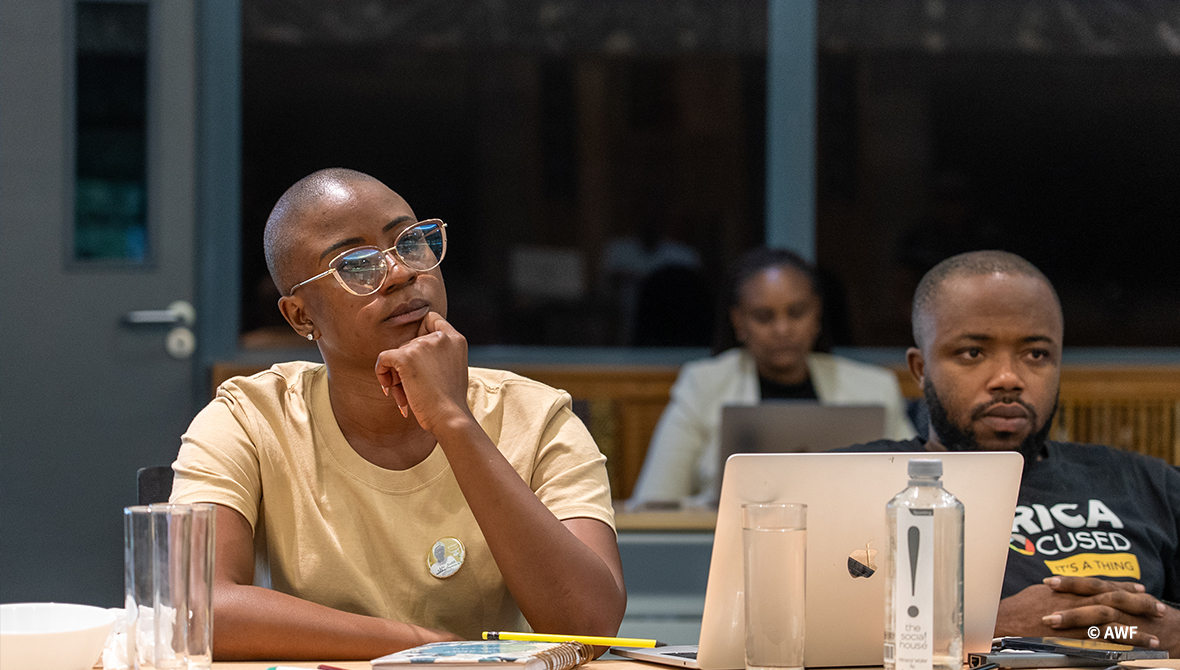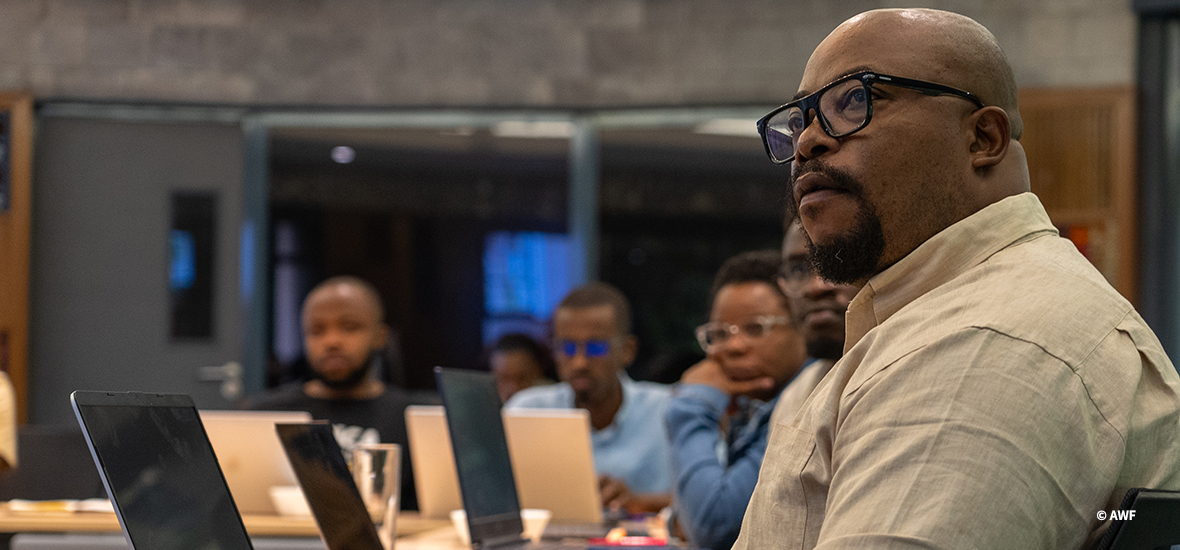In Conversation with NEWF Fellows Laura Onyama and Adams Cassinga

Recently, ten aspiring conservation filmmakers joined the African Conservation Voices Producers’ Lab (ACVPL) fellowship and took part in an immersive storytelling workshop in Nairobi. This fellowship is a collaborative effort by the African Wildlife Foundation (AWF) and Nature, Environment, and Wildlife Filmmakers (NEWF), aimed at fostering the abilities of African filmmakers and empowering them to create compelling conservation narratives. The ACVPL has been facilitated by Africa Refocused, a joint venture between NEWF and the National Geographic Society.
The fellowship, a nine-month program, offers the NEWF Fellows mentorship and support as they produce, film, and disseminate short conservation films that provide a distinctly African perspective. These films tackle a range of topics, including human-wildlife coexistence, climate change, Indigenous and community-led conservation initiatives, community resilience, and species conservation.
Among the attendees were Laura Onyama, a filmmaker and environmental advocate from Cameroon, and Adams Cassinga, the founder of Conserve Congo. Both Onyama and Cassinga have a deep passion for wildlife conservation and are dedicated to telling impactful stories. Their experiences, along with other NEWF Fellows, underscore the transformative power of film in shaping conservation narratives and driving change.

Ms. Onyama expressed her enthusiasm for the program and provided insights into her diverse career as a filmmaker and environmental advocate.
Q&A with Laura Onyama
Q: How did your background lead you to the ACVPL program?
Ms Onyama: As a filmmaker from Cameroon, I have experience as an actress, film producer, and writer. My work is influenced by my roots in the English-speaking southwest region of Cameroon. Over time, my collaborations with environmental organizations ignited a passion for wildlife filmmaking. The ACVPL program offers me a platform to refine my storytelling abilities in this domain.
Q: What is the focus of your upcoming film project?
Ms Onyama: My film project, titled “Home,” is set in Campo Ma’an National Park in Cameroon. This project holds personal significance as it examines the interplay between economic development, conservation objectives, and human rights. My goal is to illuminate how these elements intersect and advocate for harmonious coexistence.
Q: How do you plan to address conservation challenges in your film?
Ms Onyama: I intend to explore how various factors that influence conservation intersect with policymaking. My specific aim is to ensure that agricultural corporations involve community leaders in decision-making processes, thereby respecting the cultural values of communities and upholding the rights of all individuals.
Q: Could you share your thoughts on gender dynamics in the film and conservation sectors?
Ms Onyama: While women are at the forefront of the Cameroonian film industry, there is a noticeable lack of female representation in conservation. As a woman, I believe in the power of determination. It’s crucial to encourage more women to participate in conservation by raising awareness and ensuring equal opportunities.
Q: How do you plan to encourage more women to participate in conservation?
Ms Onyama: The key to this is raising awareness and sensitizing women about opportunities in the conservation sector. Women who are already involved should serve as role models and mentors. Ensuring women receive equal consideration for grants and initiatives will foster greater gender diversity.
Mr Cassinga, founder of Conserve Congo, provides insight into his journey in wildlife conservation and his aspirations as a storyteller aiming to influence the narrative of conservation in the Democratic Republic of Congo (DRC) and beyond.
Q&A with Adams Cassinga
Q: How did your background lead you to the ACVPL program?
Cassinga: My journey began with the founding of Conserve Congo, a non-profit organization dedicated to combating wildlife trafficking and poaching in the DRC. This endeavor led me to the ACVPL program, where I aim to amplify my impact through storytelling and community engagement.
Q: What is the focus of your upcoming film project?
Cassinga: My film, titled “We Ate Our Forests Away,” delves into the exploitation of forests by local communities in the DRC. Through this project, I aim to raise awareness about the detrimental effects of bushmeat consumption and advocate for sustainable alternatives.
Q: How do you plan to address conservation challenges in your film?
Cassinga: I plan to highlight pressing issues such as poaching and habitat loss while proposing viable solutions. By showcasing alternatives beyond over-dependence on forests, I hope to ignite action and garner support from governmental bodies, NGOs, and the international community.
Q: What is your ultimate vision?
Cassinga: My vision is to create a future where communities flourish alongside healthy ecosystems. This film aims to ignite action and empower young people by leveraging communication methods they connect with, like social media, to cultivate a new generation of conservation ambassadors.